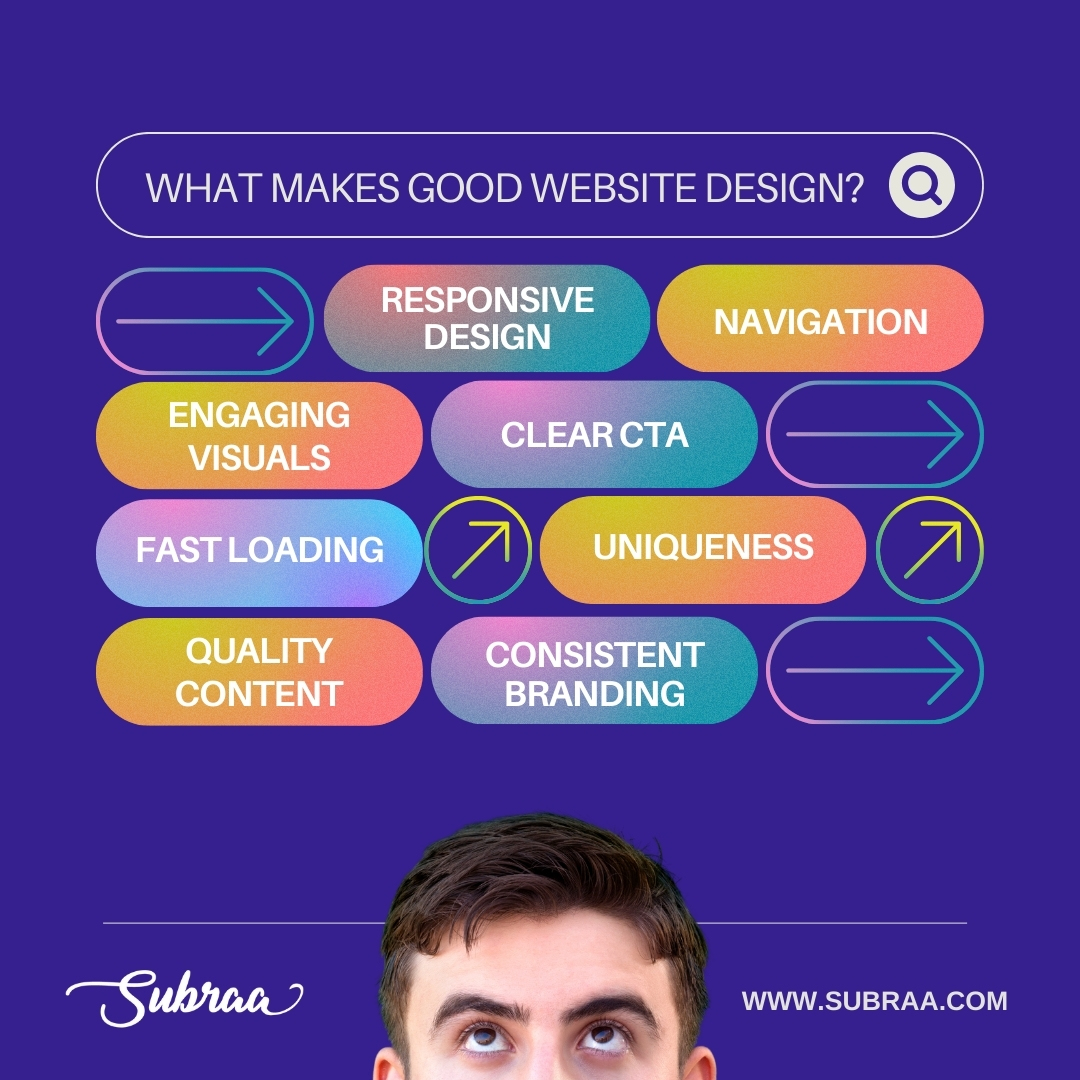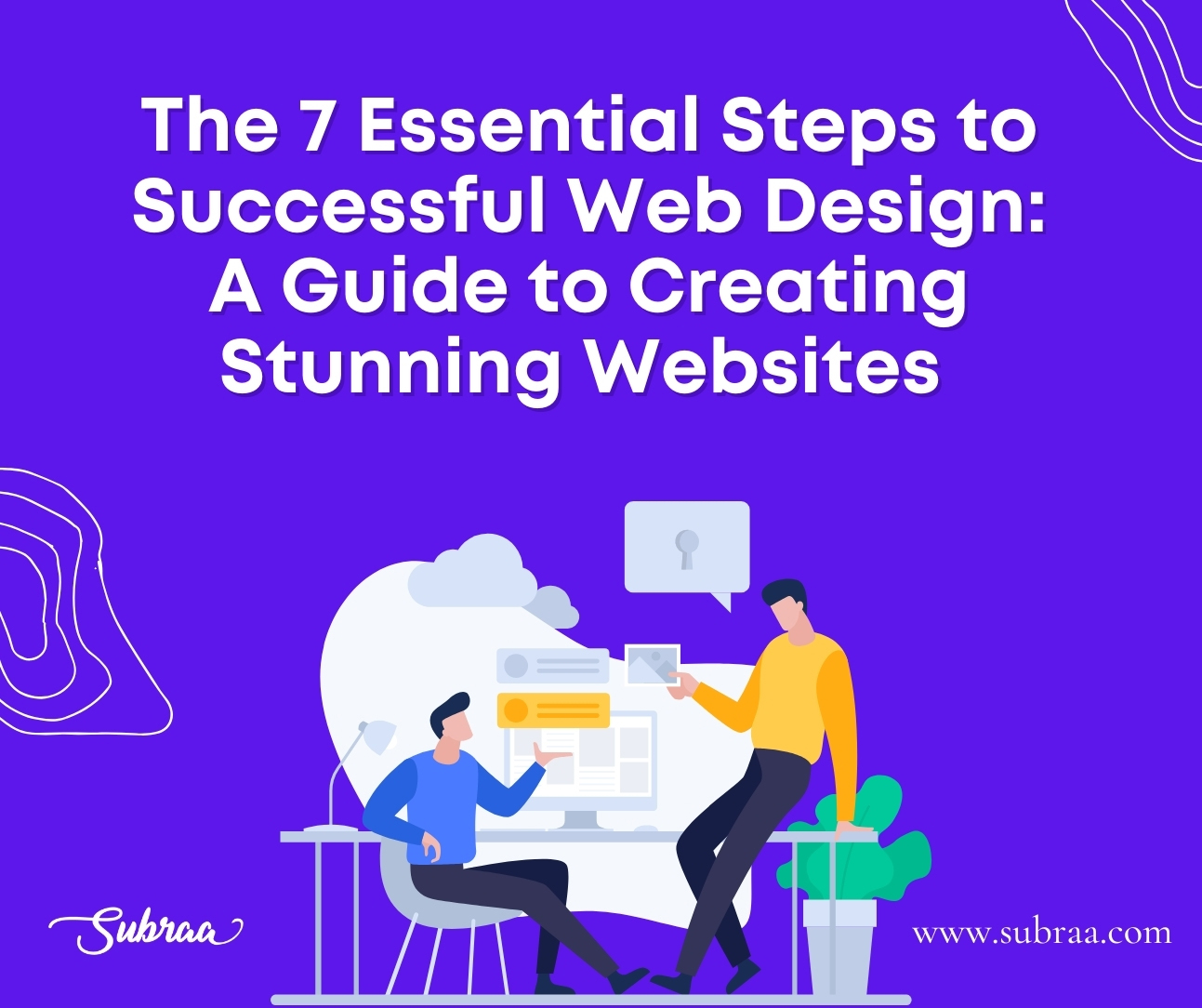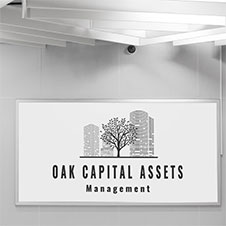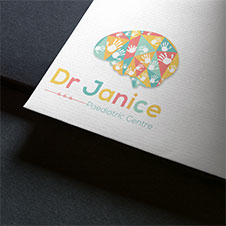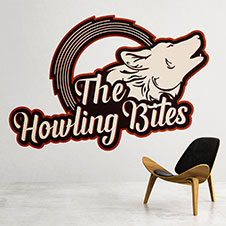Websites are no more just a place where people find your business, it’s the face of your brand and key for your success. Whether you’re a start-up, a small business, or a personal brand, creating a stunning and functional website is essential for building trust, engaging your audience, and growing your business.
The Four Most Important Pages for a Website in 2024: A Guide for Business Owners and Freelance Web Designers in Singapore
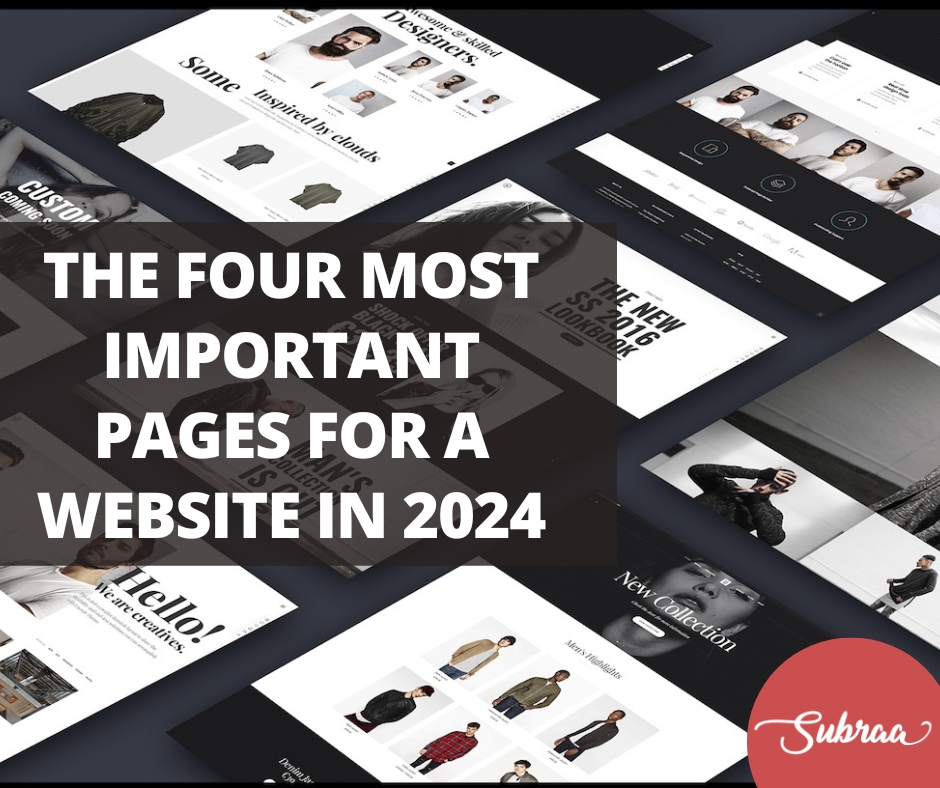
Web design is constantly evolving, and staying ahead in the website design trend is not a choice but a necessity. When you hire a Freelance Web Designer Singapore to design your website, you need to focus on specific pages along with your website copyright. This article explores the crucial aspects of the four most important pages for a website in 2024. Websites are vital for every business, and a well-designed website is a dynamic tool that can significantly impact a business’s reach, credibility, and overall success. Understanding the role of websites is crucial for every business, website design generally encompasses the visual and functional elements of a website, ranging from layout and color schemes to navigation and user experience. Websites are a combination of graphic design, user interface and user experience. Your freelance web designer will use this virtual space to effectively communicate your brand’s message and facilitate user engagement.
The Importance of Website Design for Every Business
Website design is the fusion of aesthetics and functionality, carving the digital face of your brand. Website design involves layout, visuals, and user experience, crafting an immersive online space. Website design goes beyond the visual to ensure seamless navigation, enhance user engagement and leave a lasting impression on your audience.
Here are a few key points on why websites are essential for every business, regardless of size.
First Impressions Matter:
Websites are the crucial point of contact between a business and its potential customers. A well-designed website creates an immediate positive impression, conveying professionalism and attention to detail.
Credibility and Trust:
Your Freelance Web Designer Singapore will help to build a website that plants confidence in your website visitors. A professional website builds business legitimacy, commitment the business shows and credibility.
User Experience (UX):
A user-friendly website is vital for retaining visitors. Intuitive navigation, clear calls to action, and a seamless experience contribute to positive user interactions. A positive UX encourages visitors to stay longer and explore, potentially leading to conversions.
Branding and Consistency:
Website design is critical in reflecting and reinforcing a brand’s identity. Consistent use of colors, fonts, and images across the website promotes brand recognition, which is crucial for a website’s success.
Search Engine Optimization (SEO):
The structure and design of a website influence its search engine ranking. It is important to hire a website designer who also excels in SEO as the website designer will help build a website with clean code, responsive design, and high-quality content. A well-optimized website is more likely to appear in relevant search results.
Marketing and Conversion Tool:
Your business website is a powerful marketing tool, with compelling visuals, quality content and clear call to action buttons you can convert visitors to customers.
Adaptability and Scalability:
As business needs evolve, a well-designed website can adapt and scale accordingly. Whether it’s adding new pages and features or integrating e-commerce capabilities, a flexible website grows with the business.
Competitive Edge:
An aesthetically pleasing and functional website can provide a competitive edge in sectors where competition is fierce. It distinguishes a business from its competitors and positions it as a leader in its industry.
This blog explores the must-have pages that are essential for a website’s success in 2024.
The Homepage: Your Digital Storefront
A website’s homepage serves as the digital storefront, the home page will be the primary point of contact between your business and the target audience. Understanding the essential importance of the homepage and structuring it effectively are pivotal steps toward creating a compelling online presence.
Your homepage is the first impression visitors get of your business when they visit your website. The websites home page should be optimized with the following:
Clear Brand Messaging
Ensure your brand message is concise, communicating who you are and what you offer.
Compelling Visuals
Use high-quality visuals to captivate visitors and enhance the overall user experience.
Call-to-Action (CTA)
Strategically place CTAs to guide visitors towards desired actions.
Importance of the Homepage in a website
First Impressions:
Your homepage is the first thing your customer lands on to know more about your brand. A well-designed homepage creates an immediate and positive impression, fostering user trust and curiosity.
The homepage guides visitors through the website. Intuitive menus, clear calls to action, and strategically placed links streamline the user journey, ensuring seamless exploration.
Brand Representation:
The homepage is a canvas for brand representation. Consistent use of colors, fonts, and imagery reinforces brand identity, leaving a lasting imprint on visitors and enhancing brand recall.
User Engagement:
An engaging homepage captivates visitors, encouraging them to learn more about your services and products. Clear visuals, concise messaging, and strategically placed content hook users to explore further.
SEO Significance:
Search engines prioritize homepage content when determining relevance. A well-optimized homepage improves search engine rankings and overall online visibility.
Structuring the Website Homepage
Implement an intuitive navigation menu that guides users to key website sections. Clarity in navigation enhances the overall user experience.
Strategic Headline:
A compelling headline succinctly conveys the brand’s essence. It should be clear and engaging and encourage visitors to stay and explore.
Eye-Catching Imagery:
Visual elements are important. Use high-quality images or graphics that resonate with the brand, convey professionalism and capture attention.
Concise Messaging:
Communicate your value proposition concisely. Use brief, impactful text that informs visitors about what your brand offers and why they should explore further.
Call to Action (CTA):
Strategically place CTAs to guide visitors toward expected actions. Whether purchasing, signing up, or exploring more, a well-placed CTA boosts conversions.
Feature Products or Services:
Showcase your business’s key products or services on the homepage. This provides a snapshot of the brand’s offers and entices users to learn more.
Social Proof:
List client testimonials, reviews, or social media feeds to build credibility. Social proof assures visitors that others have had positive experiences with your brand.
Responsive Website Design:
Ensure the homepage is optimized for various devices. A responsive design guarantees a consistent and user-friendly experience across desktops, tablets, and smartphones.
Latest Content or Updates:
Feature recent blog posts, news, or updates to showcase the website’s freshness and relevance. This will encourage repeat visits and keep users informed.
Contact Information:
Display clear contact information, reinforcing accessibility. Whether it’s a physical address, phone number, or email, transparent communication fosters trust.
Homepage design or the landing page design is always considered as the digital representative for your business, it helps in creating a strong positive impression to your customers, influencing their view of your business and make them browse through. A well-designed and developed home page coupled with all the above essential elements will help with conversion.
About Us: Building Trust and Credibility
The About Us page is where you build trust with your website visitors. This page helps to create authentic connections with your target audience and conveys your brand’s story and the company’s mission and vision.
The about Us page can be enhanced with the below.
Company Story
Share your business journey, values, and mission to connect with your audience.
Team Showcase
This section helps to introduce your team, adding a personal touch to your brand.
Client Testimonials
Testimonials from real-time customers help to establish credibility.
Importance of the ‘About Us’ Page:
Humanizing the Brand:
The ‘About Us’ page humanizes the brand, transforming it from a faceless entity into a relatable story. It provides users insights into the people behind the brand.
Building Trust:
Trust is the most essential factor in digital media. A well-crafted ‘About Us’ page fosters trust by transparently sharing the brand’s history, mission, and the people steering its journey.
Clarifying Purpose:
Whether it’s a commitment to sustainability, innovation, or customer satisfaction, the ‘About Us’ page clarifies the brand’s purpose. The about Us, page on a website aligns users with the brand’s values.
Differentiation:
You can make the about us page more distinctive; differentiation is the key and About Us page showcases what sets your brand apart, be it your unique value or the company’s history or the approach your company uses etc.
Structuring the ‘About Us’ Page of your website
Founder’s Message:
You can begin the about us page with a personal message from the founder or important stakeholders. A personal message will set of a tone of authenticity and provides a professional touch to the brand.
Brand History:
Outline the brand’s journey. Highlight key milestones, challenges, and successes. This narrative paints a comprehensive picture of the brand’s evolution.
Mission and Values:
Clearly communicate the brand’s mission and values. This section serves as a guide to both customers and team members in understanding the brand’s core principles.
Team Introductions:
An introduction to the key team members would be great. Include brief bios, showcasing the diverse skills and personalities contributing to the brand’s success. This adds a personal touch and establishes a sense of familiarity.
Visual Content:
Incorporate quality images, such as team photos, behind-the-scenes images, or videos. Visual content enhances engagement and adds depth to the storytelling experience.
Awards and Recognitions:
Showcase any awards, certifications, or industry recognitions. This reinforces the brand’s credibility and positions it as a leader in its field.
Community Involvement:
Share information about the brand’s community involvement or social responsibility initiatives if any. This underscores a commitment to making a positive impact beyond business transactions.
The ‘About Us’ page is a narrative bridge, personally connecting the brand with its audience. Beyond being an informative page, it’s a storytelling platform that, when structured thoughtfully, becomes a powerful tool for building lasting relationships and fostering brand loyalty.
Services/Products Webpage: Showcase Your Offerings
This page is the heart of your business. The Services/Products page emerges as the showcase of what the brand offers, an essential space where visitors transform into customers. This page serves as the digital marketplace, strategically presenting the services or products a brand provides. Optimize the services page with the below:
Detailed Descriptions
Clearly outline your services/products with compelling descriptions.
High-Quality Images
Use captivating visuals to showcase the quality of your services and real product images.
Pricing Information
Be transparent with your pricing to build trust and manage customer expectations.
Importance of the Services/Products Page:
Showcasing Products/Services:
The primary role of this page is to showcase the diverse range of services or products a brand offers. It’s the digital shelf where visitors explore and choose.
Informing and Educating:
The Services/Products page acts as an informational hub. It provides detailed descriptions, specifications, and benefits, educating potential customers and helping them make informed decisions.
Conversion Gateway:
Beyond information, this page acts as a gateway to conversions. Strategic positioning of effective visuals, compelling copy, and clear calls to action transforms website visitors into potential customers.
Establishing Credibility:
A well-structured Services/Products page establishes credibility. Detailed information, customer testimonials, and transparent pricing build trust and confidence in the brand.
Search Engine Optimization (SEO):
Each service or product is an opportunity for website ranking in search engines. Well-optimized content on this page enhances the brand’s visibility on search engines, driving organic traffic.
Structuring the Services/Products Page:
Provide intuitive navigation. Categorise services or products logically, using sections, facilitating a seamless user experience.
Strategic Headings and Subheadings:
Use clear, explanatory headings and subheadings. This aids users in quickly finding the specific service or product they are interested in.
Compelling Image Visuals:
Images are powerful communicators. Include high-quality images or videos that showcase each service or product, providing a comprehensive view.
Detailed Descriptions:
Each service or product should have a detailed explanation. Highlight key features, benefits, and unique selling points to guide customers’ decision-making.
Pricing Information:
Transparency is key; including pricing information for services or products helps. Clearly outline any packages, plans, or variations in pricing to avoid ambiguity.
Customer Testimonials:
Integrate customer testimonials or reviews for each service or product. Genuine product reviews or services build trust and serve as social proof of the brand’s quality.
CTAs (Calls to Action):
Strategically place CTAs throughout the page. Encourage users to inquire, purchase, or explore further. Clear CTAs guide the user journey and drive conversions.
Related Products or Services:
Cross-promote related products or services. This will encourage users to explore additional services or products, potentially increasing conversion.
FAQ Section:
Foresee customer queries by including a most Frequently Asked Questions (FAQ) section. This provides instant answers and enhances the user experience, include general questions, product related questions etc.
Responsive Web Design:
Ensure the web page is optimized for mobile devices. Many users access websites via smartphones, and a mobile-friendly design is compulsory.
In conclusion, the Services/Products page is more than a mere catalogue; This page guides your website visitors in decision-making. Design of services page should be carefully structured with clear information, quality images and strategic elements. This page is considered the digital marketplace where your website visitors convert to valued customers.
Contact Us: The Gateway to Interaction
The Contact Us page is where you seal the deal. The contact Us page on the website acts as a bridge for interaction between the customer and the business. It is often considered a simple form and business owners neglect that it helps create meaningful connections with users, clients and potential investors. Enhance your contact form with:
User-Friendly Enquiry Form
Keep your communication process as simple as possible with an easy to use contact form. Collect the key information that is required to contact the clients for the next step.
Social Media Links
Connect with your audience on social platforms for continuing engagement.
Location Information and Map
Provide precise location details to build credibility and facilitate in-person visits.
Importance of the Contact Us Page:
Accessibility and Trust:
The Contact Us page is a representation of accessibility. It provides users a direct pathway to reach out, encouraging trust by showcasing transparency and a willingness to engage.
Customer Inquiries:
The contact form serves as the primary channel for customer inquiries. Whether it’s a question, feedback, or a potential collaboration proposal, the Contact Us page is the designated space for these interactions.
Building Relationships:
Effective communication is the base of relationships. The Contact Us page provides a platform to start and cultivate relationships with clients, partners, and investors.
Conversion Catalyst:
For businesses, the Contact Us page is a conversion catalyst. The digital handshake can transform an interested visitor into a prospective client or customer.
Location Information:
The Contact Us page is an essential repository of location information. Clear addresses, maps, and contact details help users find physical establishments.
Structuring the Contact Us Page:
Clear Contact Information:
A clear contact information which includes physical addresses, phone numbers, and email addresses. Transparency is key for any business.
Contact Form:
Integrate a user-friendly contact form. Keep it concise, asking for essential information. The form should be easy to fill out, encouraging users to get in touch. Don’t overload the form with too input, your used might loose interest.
Multiple Communication Channels:
Offer multiple channels for communication. In addition to a contact form, provide email addresses, phone numbers, and links to social media profiles.
Departmental Directories:
For larger organizations you can consider providing departmental directories. This ensures that inquiries reach the relevant departments promptly.
Business Hours:
Adding business hours to the contact page will be an added advantage, users will know that they will get a reply in the business hours.
Interactive Maps:
Incorporate interactive maps for physical locations. This aids users in navigating to your business location, adding a practical dimension.
Call to Action (CTA):
Include a compelling call to action. Whether it’s encouraging users to ask a question, request a quote, or schedule a consultation, guide them on the next steps.
Privacy Assurance:
Reassure users about the privacy and security of their information. A brief note about data protection practices adds a layer of trust.
Responsive Design:
Ensure the Contact Us page is optimized for various devices. Users accessing your website via smartphones or tablets should have an equally seamless experience.
Confirmation and Thank You Message:
After submitting a form, users should receive a confirmation message. A ‘Thank You’ page or automated email reinforces that their inquiry is received and appreciated.
In conclusion, the Contact Us page is more than a functional necessity; it’s a space for developing connections and facilitating meaningful interactions. When structured thoughtfully with essential information, user-friendly forms, and clear calls to action, it transforms client engagement into tangible relationships and converts curiosity into constructive communication.
The above steps help to create a visually appealing website with enhanced user experience, which builds trust among your website visitors and drives meaningful interactions with your audience. You can reach out to Subraa, freelance web designer in Singapore for your website design project which truly represents your brand and resonates with your target audience


